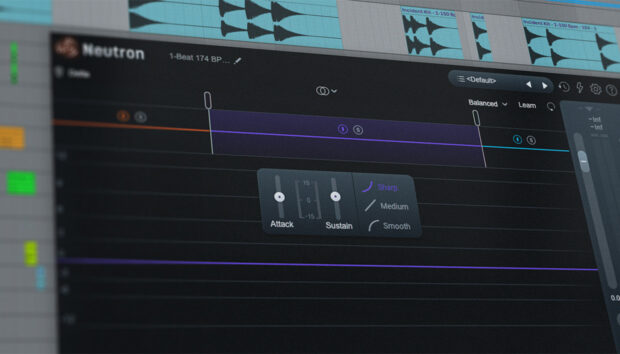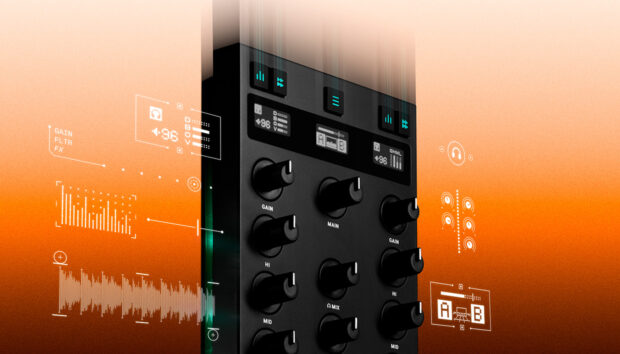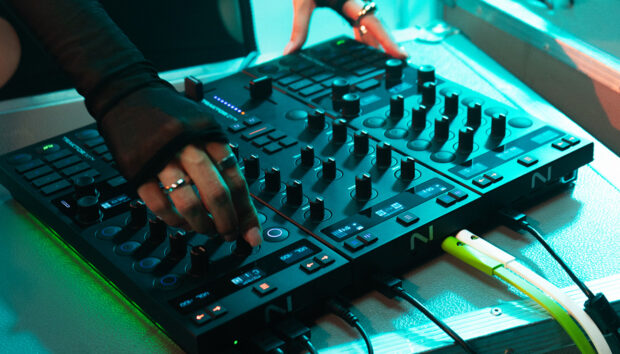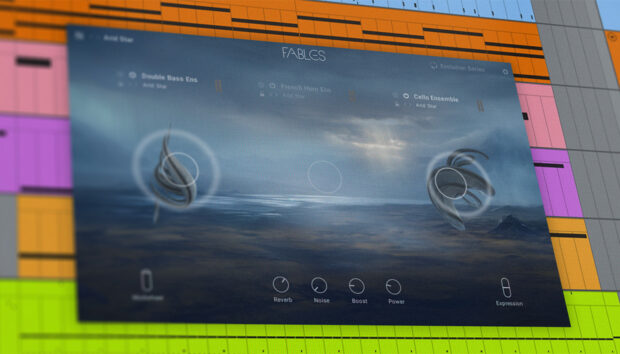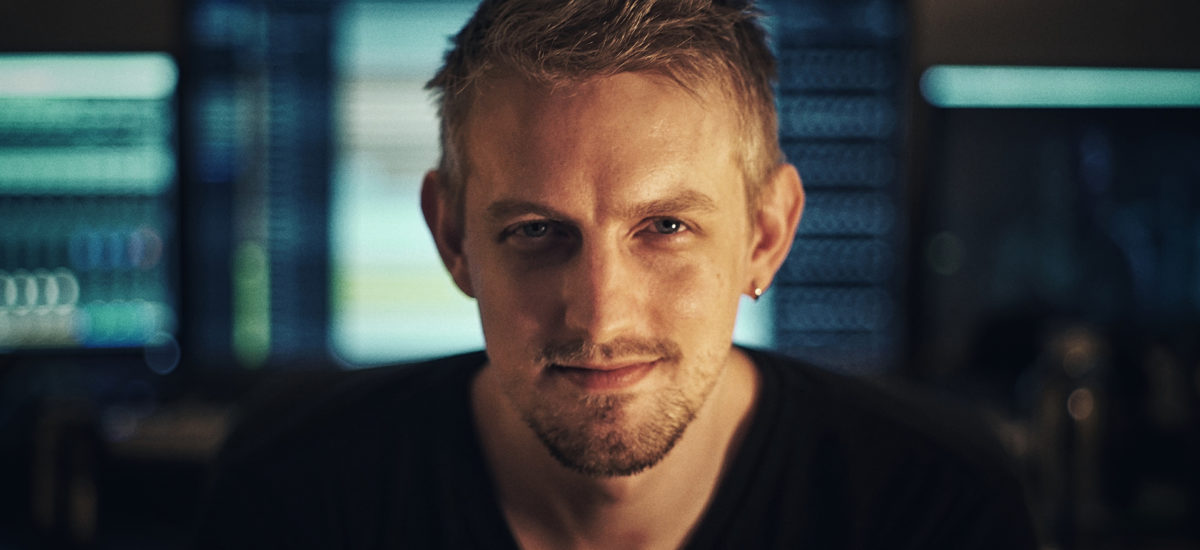
Sound designer, composer, and all-round music expert Daniel James has followed a career path that mirrors his passion for video game scores . Along with his film credits, such as his work on Terminator Genisys, James has worked on numerous game scores including Metal Gear Solid V, in addition to establishing his own sample library company HybridTwo, with production partner Aaron Frensley. Native Instruments spoke to James about his futuristic and cinematic sound, what technology he uses, and how he got into the business.
When did you get into composing?
When I was 14, I saw the trailer for Metal Gear Solid 2: Sons Of Liberty. This was the first time I had a noticeable emotional response to music. I don’t know why, but I felt that one day I wanted to work on this franchise. I started to design and program video games and started working with Aaron Frensley, who would make the music for my little projects. He was a fantastic composer and he got me really excited about music. After I had pestered him for a while, he agreed to teach me how to make music on a computer. I bought a 25-key MIDI keyboard, installed the free Ableton Live version that was included, and started clicking boxes and making sounds. But when I saw the trailer for Metal Gear Solid it struck me, and finally I realised why it had such a huge impact on me before. It was the amazing soundtrack by Harry Gregson-Williams! Pulsing rhythms in perfect synergy with what was happening on the screen. Heroic orchestral horns blasting out the melody as Solid Snake fires his weapon.
Did you get a musical education?
I got my first musical education during college. I was almost 20, so that seems quite late for composers these days. During those two years I learned some fundamental music theory and keyboard skills, which I still use. Even though I didn’t learn about orchestras, music for film, or sample libraries, I still feel that having a basic music training is a good foundation to have. After college I stopped studying and started doing: I learnt as I went on. As soon as I got interested in something, I would browse the Internet until I knew all about it. Doing it this way really helps you to find your own unique voice.
How did you land your first project?
This happened really organically. I made a list of people who might need music: film and game makers, trailer companies, etc. I found online forums where aspiring directors and developers were active and I started engaging with them. I met people with similar dreams and built genuine friendships. Then I came across Metal Gear Solid: Philanthropy, a fan film based on my favorite series. They already had a composer, but I still reached out to tell them I was huge MGS fan and very excited about their project. I got talking to the director Giacomo Talamini and we became friends. For fun, I started composing in the style of Metal Gear Solid. Giacomo heard it and liked what I wrote. A while later they messaged me, because they needed extra help with the movie score and that’s how I got my first project.
What does your setup look like?
I compose on a Mac Pro with the max specifications and have external SSD drives connected via USB 3 to host 8TB of sample libraries. Over time, I switched to Cubase as a DAW because it has better MIDI data control and supports surround sound. I own the Arturia Matrix Brute hardware synthesizer, but prefer to work in a way that doesn’t depend on me being in the studio. I have a pair of cheap M-Audio BX8 speakers which I have been using for ten years so I know their sound through and through. Paired with Sonarworks’ speaker-calibration software, they allow me to confidently mix on them. I use the M-Audio Keystation 61 as MIDI keyboard and use the Korg Nano Kontrol to enter MIDI CC data.
My most important tool is Kontakt. When I started out I had no access to sample libraries and did my own sound design. I would record random sounds, load them into Kontakt and process them until they would fit to whatever I was composing for. Others really liked this, because people started to ask me to make sounds for their projects.
Together with Aaron Frensley, I started HybridTwo, our own sample library company. We use Kontakt Script to make our own instruments inside Kontakt, building brand new effects and sequencers that don’t exist anywhere else. Project Alpha and Project Bravo both have received rave reviews and right now we are building our third instrument: Project Chaos. We are taking things even further, so be sure to check it out!
Awesome to hear KONTAKT is your breadwinner!
Making my own sample libraries wasn’t a career goal, but I learned that when work slowed down, my creativity does not. It’s fun how that goes, first my free time went into making soundbanks for personal use, then came commercial sample libraries. And now I spend my free time on YouTube.
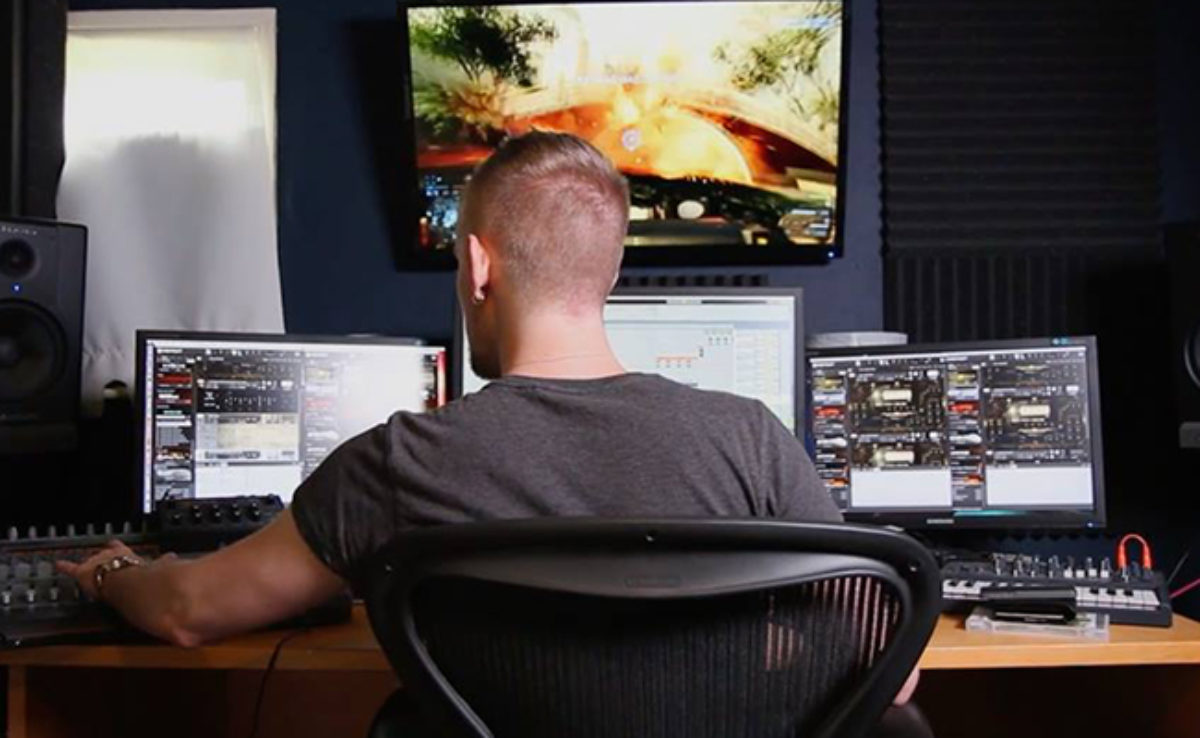
Why did you start uploading to YouTube?
At a certain point I listened back to old scores, and would think “how in the hell did I do that?!”. That’s when I started uploading to YouTube, firstly to be able to look back and see how I did certain scores. Secondly to see how I was progressing. People started subscribing to my channel and asking my opinion about Kontakt sample libraries, so I started reviewing them. These videos got a lot more traffic than my vlogs and before I knew it I was hooked on covering every library I could get my hands on.
What was the next big thing in your career?
After a few years of working hard, learning and teaching, building friendships, along with my brand, I got the chance to work on my dream project: Metal Gear Solid V: The Phantom Pain. I believe that I made the right career decisions because I set that as my main goal.
Ludvig Forssell, the amazing composer who was the lead composer on Metal Gear Solid V brought me onboard. They were looking for a creative sound designer to help them on the score. There I was, working together with Forssell, Justin Burnett, and Harry Gregson-Williams on my favorite game franchise! The actual work was like any other project. It was hard and very rewarding, but there were no golden chariots and singing angels. It’s a great reminder to never give up on your dreams. This industry is all about endurance.
I now work on projects as lead composer, but I had to work hard to get there. I had to build my portfolio and learn how to do the actual job. I am really good at approaching sound design from a musical side and I’m always able to add value to the team. On Terminator Genisys I worked as ‘hybrid production’; for Mass Effect 3 I programmed the synths; and on Call Of Duty: Black Ops III I did additional music. I made myself valuable not just to the directors, but also to the other composers. I was helping them but at the same time I was learning from them. How they did their jobs, what was demanded from them while working on huge franchises. This taught me much more than musical school could ever do. Being part of a team is never negative, even if you play a backseat role you can still learn a lot. Everything I learned while working on teams I still use today, when interacting with directors and developers for my own projects.
How do you network and find people to work with?
I hate the word ‘networking’ because it sounds like you are only meeting people because you want something from them. This is a creative field and you need to love what you are doing. This common passion is shared by most people in the industry, and a great base to form a friendship. Don’t just hand out business cards, but have a genuine conversation with people about the things you are passionate about. You’ll see how easy it is to bond over shared interests.
What other career goals do you have?
I want to keep learning and improving myself. I feel like I’m just getting started. Taking the lead on projects has been a great learning experience for me. For my latest gig I got to record a large string and brass section in AIR Studios in London with the amazing Jake Jackson running the desk. This was a fascinating learning experience and something that I can use in the future.
So I want to keep working on feature films and big video game projects. I can’t wait for all the challenges and experiences that come with them!
Do you have any final advice for aspiring composers?
Get educated! I don’t necessarily mean a formal musical education, but soak up all there is to learn about what fascinates you. Take a piece of music you love, break it down into its elements and find out how it was made and why it works. Work, even when you don’t have work. Always stay creative, make sure you are doing something to keep your creative muscles in good shape.
The more creative work you experience, the more you can subconsciously draw from during your work. As a composer, your style is driven by your taste, and your work is a mixture of everything you’ve experienced and the emotional reaction you have to it. There are no original thoughts, everything is based on something else, so make sure you have enough experiences to work with.








